News
-
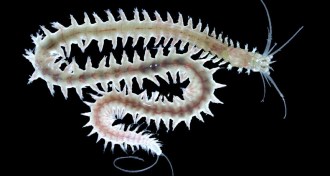 Life
LifeNewfound biological clocks set by the moon
Two unrelated marine organisms have rhythms dictated by tides, lunar cycle.
-
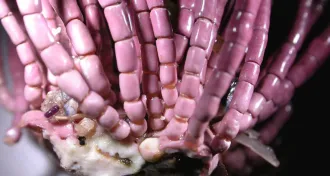 Plants
PlantsHard-shelled seaweed survives by its loose knees
Stringy joints between calcified algae’s segments don’t break easily under repeated stresses.
By Susan Milius -
 Earth
EarthOxygen wafted into Earth’s atmosphere earlier than thought
Date pushed back to 3 billion years ago, suggesting photosynthesis had evolved by then.
-
 Psychology
PsychologyMental rotation gears up by age 5 for both boys and girls
Kid-friendly test suggests that the ability to visualize objects from different angles starts early.
By Bruce Bower -
 Health & Medicine
Health & MedicineDextrose rub helps newborns with low blood sugar
Massaging the sugary gel into babies’ mouths may lessen the need for intravenous infusions of glucose, a study shows.
By Nathan Seppa -
 Life
LifeKiller cells trained on leukemia may protect some people
Immune system seems to remember cancer in people who've never had it, a new study suggests.
-
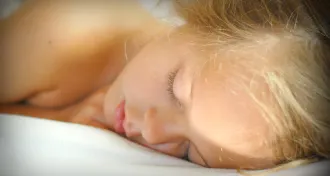 Neuroscience
NeuroscienceScented naps can dissipate fears
People unlearned an odor's unpleasant accompaniment when they smelled it in their sleep.
-
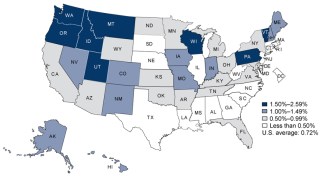 Health & Medicine
Health & MedicineHome births more risky than hospital deliveries
Babies born at home are more likely to lack pulse after five minutes.
By Nathan Seppa -
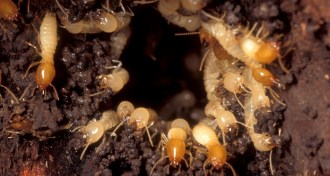 Ecosystems
EcosystemsFeces in termites’ nests block biological pest control
Built-in poop nourishes bacteria that protect notorious Formosan species.
By Susan Milius -
 Tech
TechVitamin stops static electricity
Clearing out uncharged molecules may prevent charge buildup.
By Meghan Rosen -
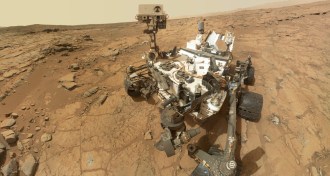 Planetary Science
Planetary ScienceMars rover fails to find methane
A dearth of the gas in the Red Planet's atmosphere disappoints scientists looking for signs of biological activity.
By Erin Wayman -
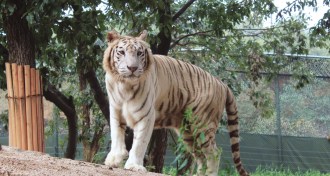 Animals
AnimalsTiger, lion and domestic cat genes not so different
Genomes of big felines provide insight into their evolution.